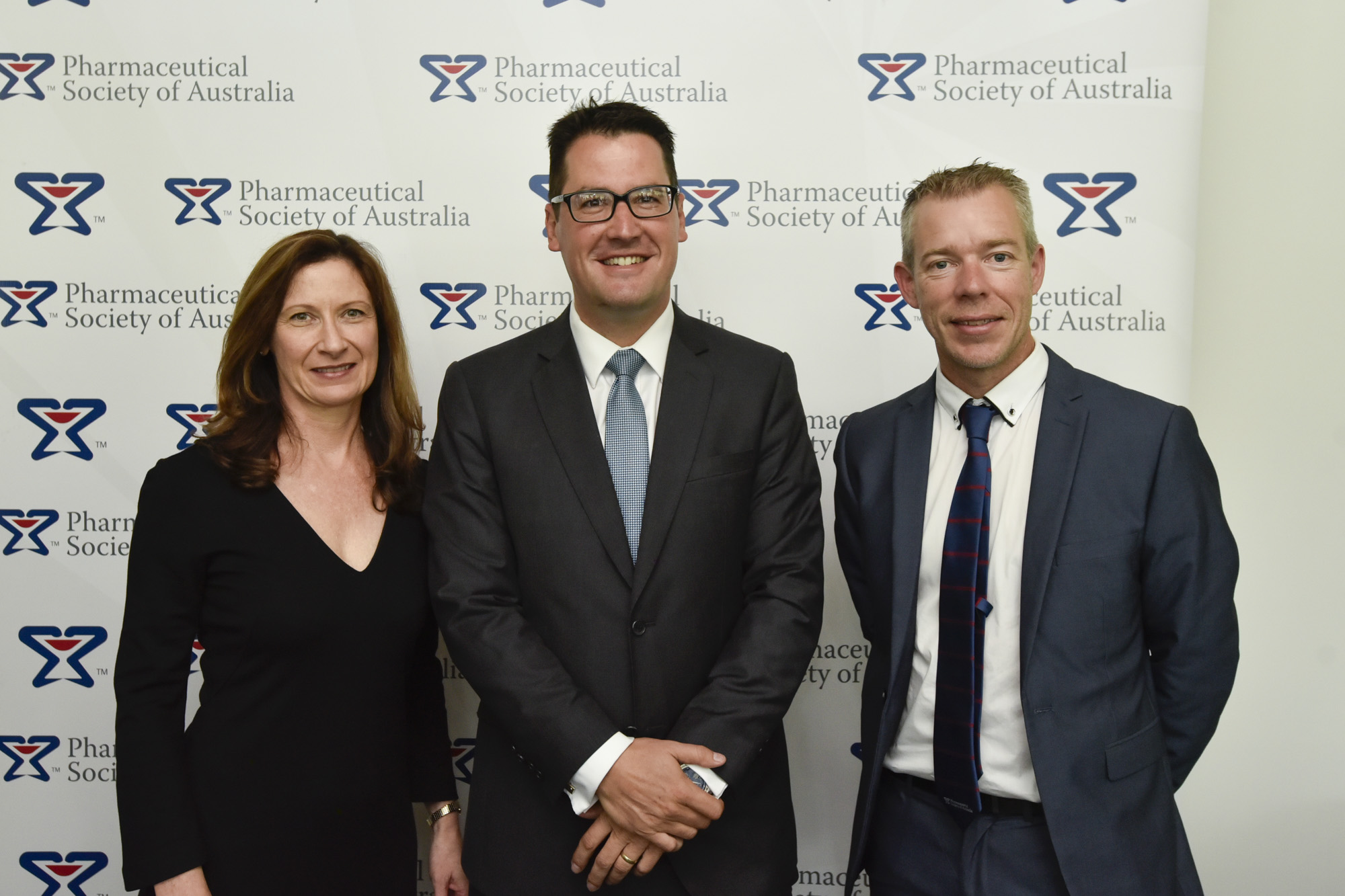Australia’s National Digital Health Strategy has outlined a five-year transition to a digitally connected health system, beginning with opt-out My Health Records for every Australian by 2018. How will pharmacists and their patients benefit?
Developed by the Australian Digital Health Agency and approved by all State and Territory Health Ministers last month, the strategy identifies seven priority areas in digital health with the aim of using technology and innovation to support efficient and sustainable healthcare.
The strategy paves the way for paper-free messaging and real-time sharing of information between all hospitals, healthcare professionals and patients by 2022. A key focus will be new digital services for newborns, the elderly and people living with chronic disease, as well as wider use of telehealth in rural and remote Australia.
My Health Record will provide easy access to discharge summaries, medical history, prescription and dispense records and allergies. The system can also include information from the Australian Immunisation Register, Medicare Benefits Schedule, Pharmaceutical Benefits Scheme and Australian Organ Donor Register.
About five million people in Australia already have a record under the current opt-in model, and Queensland has become the first state to connect all public hospitals and health services to the system.
An Australian Digital Health Agency spokesperson said, ‘The Agency has received strong feedback from pharmacists and their clinical peaks that digital health systems need to enable new models of care as clinical practice changes and adapts with the health system.’
Pharmacists can access My Health Record through dispensing systems or a provider portal. Only two software vendors were originally conformant with the system: Fred Dispense and Aquarius Dispense.
In August, six more community pharmacy software vendors signed up, allowing pharmacists to access the system in a seamless way and demonstrating strong industry engagement with the system. The Agency is negotiating with several other vendors and hopes to reach agreements over the next few months.
To drive uptake of My Health Record, the Agency and Australian Commission on Safety and Quality in Health Care also announced a hospital emergency department pilot in August. The pilot will give clinicians secure, real-time access to health information such as allergies and medicines otherwise unavailable in hospital information systems.
PSA National President Dr Shane Jackson said the strategy would support more efficient health services and better outcomes for patients.
‘There is significant potential for pharmacists to use digital health records as a tool to communicate with other health professionals, particularly during transitions of care,’ Dr Jackson said.
‘The strategy makes it clear that medication management is a key focus, and that pharmacy and pharmacists are a key deliverer in that area. The Agency has really stepped up its work with pharmacists because it sees them as key drivers of My Health Record and the improvements in health it can deliver.’
My Health Record
The new My Health Record model, which will allow patients to opt-out rather than opt-in, is based on evidence gathered in the 2016 My Health Record Participation and Use Trials. Northern Queensland and Nepean Blue Mountains were used as optout trial sites, and Ballarat Hospital in Victoria and general practices in Perth were selected as opt-in trial sites.
The trials revealed the opt-out model is the ‘preferred option’ for increasing participation, while current or accelerated versions of the opt-in model would be ‘unsustainable.’ The opt-out trial sites achieved greater use of the system and demonstrated ‘almost universal’ support for the automatic creation of records.
Pharmacists on average reported a saving per patient, and individuals consistently said the Government should make My Health Record compulsory for healthcare providers to make the most of its benefits.
People from culturally and linguistically diverse backgrounds were particularly appreciative of the system, indicating a need for interpreters and translated resources to support its use in their communities.
Many Australians already use technology for health information, but wish they had greater access to digital health services. For example, 73% have researched health issues online, but only 6% have found a source they can trust; 10% access their health information on their mobile device, but 50% want to.
‘Patients expect pharmacists to have access to appropriate information to deliver care,’ Dr Jackson said. ‘They’re surprised when they hear pharmacies aren’t connected to other pharmacies or GPs.’
More efficient care
Australia’s health system can be difficult to navigate for many people: 14% of pathology tests are ordered due to lack of access to patient history, and 8% of people have missed seeing a specialist due to lack of cost information.1 The need for quick and easy access to digital health information is clear.
Dr Jackson said pharmacists sometimes work in an information-poor environment.
‘Often we only have access to our dispensing information and what the patient tells us. My Health Record will provide access to verifiable clinical information such as a shared health summary, which is really useful when you’re sitting down with a patient for a MedsCheck or Home Medication Review. The benefit to patients is safer and more effective care.’
Dr Jackson said discharge summaries in particular will be vital for pharmacies to support patients transitioning out of hospital. ‘Pharmacists will be able to understand what’s happened to the patient in hospital, what changes may have been made, and what they need to do to follow up. My Health Record really shines a light on patients’ health status so you can tailor their care.’
Dr Jackson said some Primary Health Network areas in New South Wales are already uploading pathology results to the system, which can be invaluable for pharmacists concerned about renal function or lipid tests.
‘We can overcome the debate about pharmacists’ services fragmenting care, because any services delivered by a pharmacist will be contributed to My Health Record,’ Dr Jackson said.
‘We shouldn’t limit our thinking for the future, because there are many things pharmacists can contribute to the system – Home Medication Reviews, Medication Management Reviews, MedsChecks services – that will be useful to other healthcare providers.’
In July, the Agency and the Pharmacy Guild of Australia (the Guild) formed a partnership to help community pharmacies build their digital health capabilities and improve health outcomes. Both organisations strongly support widespread use of My Health Record accompanied by relevant training and education.
Guild Executive Director David Quilty said: ‘The Guild welcomes this collaboration with the Agency as a step towards optimised integration of community pharmacies in the My Health Record system. Community pharmacists have long been early adopters and innovators in digital health, and this will spur the sector on to make an even bigger contribution.’
Security concerns
To protect the private information contained in digital health systems, the Agency formed the Digital Health Cyber Security Centre. Partnering with national and international cyber security organisations, the Cyber Security Centre aims to support information security and build understanding of potential cyber threats.
Some stakeholders have outlined concerns about data security, based on other Australian data governance projects that have met with failure in the past. Critics of the strategy have pointed out that it is vague about practical security measures and how health professionals will be trained in data protection, particularly when many software developers will be producing apps for information sharing.
Managing Director of IT consultancy PivotNine Justin Warren said, ‘The strategy document is heavy on breathless positivity, and light on concrete detail about how it will achieve its lofty goals … What I’ve seen so far doesn’t inspire confidence that the very real security issues are being adequately addressed.’
An Agency spokesperson said My Health Record has been in operation for five years with no security breaches and has authentication mechanisms in place to prevent unauthorised access. ‘Every time a healthcare provider accesses My Health Record, a log is automatically created. This allows an individual to monitor every access to their My Health Record in real time, with complete transparency.’
The Cyber Security Centre uses ‘specialist security realtime monitoring tools that are configured and tuned to automatically detect events of interest.’
Patients in the My Health Record trials had few concerns about the system’s confidentiality and security once its benefits were explained, with the benefits far outweighing the risks.
The Cyber Security Centre’s Framework for Action, including more details on data security measures, will be published later this year.
Raising awareness
The trials found healthcare professionals’ awareness of My Health Record was very low – around 20–39% – but it was higher in the opt-out sites. Only around 10,140 healthcare providers are currently connected to the system.
Awareness of online training for the system was also very low across the country, highlighting the need for further promotion.
The three-step process for registering with My Health Record is outlined on the Australian Digital Health Agency website, along with information on setting up and using the software. The Agency has also produced guides, webinars, training resources and FAQs for pharmacists at www.digitalhealth. gov.au/using-the-my-health-record-system/for-pharmacists
‘Instead of having five million patients registered with a My Health Record, we should have the overwhelming majority of patients,’ Dr Jackson said.
The Agency is working closely with PSA and the Guild to encourage use of My Health Record (see Box 2).
The Agency and peak bodies are also identifying digital health champions in the pharmacy network to deliver education and foster uptake of digital healthcare in their local communities.
Box 1. Benefits of My Health Record
- Safer and more efficient care
- Reduced adverse drug events and avoidable hospitalisations
- Less time searching for information
- Better information sharing between pharmacies, GPs and hospitals
- More coordinated care for chronic and complex conditions.
Box 2. Agency initiatives to support My Health Record
- Tailored training for digital health clinical champions and My Health Record ambassadors
- Continuing professional development (CPD) modules, co-developed with pharmacy professional bodies
- A My Health Record registration tool kit with easy to understand instructions
- Call centre support.














 PSA Chief Operating Officer Deb Bowden, Senator Zed Seselja and PSA National President Dr Shane Jackson.[/caption]
PSA Chief Operating Officer Deb Bowden, Senator Zed Seselja and PSA National President Dr Shane Jackson.[/caption]





 [post_title] => New Pharmacy House opens
[post_excerpt] =>
[post_status] => publish
[comment_status] => open
[ping_status] => open
[post_password] =>
[post_name] => new-pharmacy-house-opens
[to_ping] =>
[pinged] =>
[post_modified] => 2018-04-05 12:33:52
[post_modified_gmt] => 2018-04-05 02:33:52
[post_content_filtered] =>
[post_parent] => 0
[guid] => http://psa.studionerve.com/?p=1231
[menu_order] => 0
[post_type] => post
[post_mime_type] =>
[comment_count] => 0
[filter] => raw
)
[title_attribute] => New Pharmacy House opens
[title] => New Pharmacy House opens
[href] => http://psa.studionerve.com/new-pharmacy-house-opens/
[module_atts:td_module:private] => Array
(
)
[td_review:protected] => Array
(
)
[is_review:protected] =>
[post_thumb_id:protected] => 1239
)
[post_title] => New Pharmacy House opens
[post_excerpt] =>
[post_status] => publish
[comment_status] => open
[ping_status] => open
[post_password] =>
[post_name] => new-pharmacy-house-opens
[to_ping] =>
[pinged] =>
[post_modified] => 2018-04-05 12:33:52
[post_modified_gmt] => 2018-04-05 02:33:52
[post_content_filtered] =>
[post_parent] => 0
[guid] => http://psa.studionerve.com/?p=1231
[menu_order] => 0
[post_type] => post
[post_mime_type] =>
[comment_count] => 0
[filter] => raw
)
[title_attribute] => New Pharmacy House opens
[title] => New Pharmacy House opens
[href] => http://psa.studionerve.com/new-pharmacy-house-opens/
[module_atts:td_module:private] => Array
(
)
[td_review:protected] => Array
(
)
[is_review:protected] =>
[post_thumb_id:protected] => 1239
)












